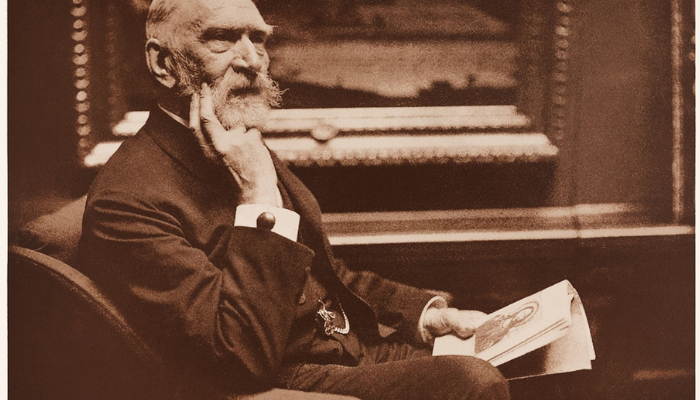Table of Contents
Sentinel Logistician (ISTJ-A/ISTJ-T)
The Sentinel personality type, as identified by the Myers-Briggs Type Indicator (MBTI), tends to approach conflict in a structured and orderly manner.
Sentinels, also known as ISTJs (Introverted, Sensing, Thinking, Judging), are known for their dependability, practicality, and efficiency.
When it comes to conflict, Sentinels may tend to be more concerned with maintaining stability and order. They may prioritize finding solutions that address the underlying issues in a logical and straightforward manner.
Sentinels may be skilled at managing their own emotions in conflicts and may be able to effectively communicate and advocate for their own needs and perspectives.

They may be more inclined to follow established procedures and protocols when resolving conflicts.
However, Sentinels may also struggle with conflicts that involve strong emotions or interpersonal dynamics.
They may have a harder time dealing with the more subjective aspects of conflict and may have a tendency to be more rigid and inflexible in their approach.
It can be helpful for Sentinels to try to balance their structured and orderly approach to conflict with an understanding of the emotional and interpersonal dynamics at play.
This can help them be more effective in resolving conflicts and building positive relationships with others.
Here are a few additional points that could be included in a blog post on the conflict style of Sentinels (ISTJs):
- Sentinels may have a strong sense of responsibility and may be motivated to find solutions that are practical and efficient. They may be more inclined to take a leadership role in conflicts and may be effective at bringing people together to find resolution.
- In conflicts that involve strong emotions or interpersonal dynamics, Sentinels may benefit from learning to manage their own emotions and to communicate effectively with others. They may need to practice being more attuned to the emotional needs of others and may need to be more flexible in their approach to conflict resolution.
- Sentinels may be more inclined to consider the long-term consequences and implications of conflicts. They may be more concerned with finding a solution that addresses the root cause of the issue and that is fair and just for all parties involved.
- It’s important for Sentinels to remember to be open and receptive to the perspectives and ideas of others, even if they differ from their own. Collaborating and seeking input from others can help Sentinels find more well-rounded and effective solutions to conflicts.
In order to effectively navigate conflicts, it’s important for Sentinels to learn to balance their structured and orderly approach with an understanding of the emotional and interpersonal dynamics at play.
This can help them be more effective in resolving conflicts and building positive relationships with others.
Sentinel Defender (ISFJ-A/ISFJ-T)
The Defender personality type, as identified by the Myers-Briggs Type Indicator (MBTI), tends to approach conflict with a focus on preserving harmony and maintaining relationships.
Defenders, also known as ISFJs (Introverted, Sensing, Feeling, Judging), are known for their kindness, reliability, and attentiveness to the needs of others.

When it comes to conflict, Defenders may tend to be more concerned with preserving relationships and maintaining harmony.
They may prioritize finding solutions that are fair and just for all parties involved and that take into account the feelings and needs of others.
Defenders may be skilled at managing their own emotions in conflicts and may be able to effectively communicate and advocate for the needs of others.
They may be more inclined to take a cooperative and consensual approach to conflict resolution.
However, Defenders may also struggle with conflicts that involve strong emotions or interpersonal dynamics. They may have a harder time dealing with the more subjective aspects of conflict and may have a tendency to avoid conflicts altogether.
It can be helpful for Defenders to try to balance their focus on preserving relationships and harmony with an understanding of the underlying issues that need to be addressed in conflicts.
This can help them be more effective in resolving conflicts and building positive relationships with others.
It’s important to remember that everyone is different and will approach conflict in their own way.
Understanding your own MBTI type and conflict style can help you be more self-aware and better equipped to navigate conflicts in a productive and healthy manner.
Here are a few additional points that could be included in a blog post on the conflict style of Defenders (ISFJ-A/ISFJ-T):
- Defenders may be more inclined to prioritize the feelings and needs of others in conflicts. They may be skilled at empathizing with and understanding the perspective of others, which can be beneficial in finding mutually-beneficial solutions.
- In conflicts that involve strong emotions or interpersonal dynamics, Defenders may benefit from learning to manage their own emotions and to communicate effectively with others. They may need to practice being more assertive in expressing their own needs and perspectives, while still being sensitive to the feelings of others.
- Defenders may be more inclined to consider the long-term consequences and implications of conflicts on relationships and social dynamics. They may be more concerned with finding a solution that is fair and just for all parties involved and that preserves positive relationships.
- It’s important for Defenders to remember to be open and receptive to the perspectives and ideas of others, even if they differ from their own. Collaborating and seeking input from others can help Defenders find more well-rounded and effective solutions to conflicts.
- In order to effectively navigate conflicts, it’s important for Defenders to learn to balance their focus on preserving relationships and harmony with an understanding of the underlying issues that need to be addressed. This can help them be more effective in resolving conflicts and building positive relationships with others.
Defenders may benefit from learning how to be more proactive in addressing conflicts and addressing issues before they become major problems.
This can help them be more effective in maintaining positive relationships and avoiding conflicts altogether.
Executive (ESTJ-A/ESTJ-T)
The Executive personality type, as identified by the Myers-Briggs Type Indicator (MBTI), tends to approach conflict with a focus on taking decisive action and finding solutions that are practical and efficient.

Executives, also known as ESTJs (Extraverted, Sensing, Thinking, Judging), are known for their leadership, confidence, and efficiency.
When it comes to conflict, Executives may tend to be more focused on finding solutions that address the underlying issues in a practical and efficient manner.
They may be skilled at managing their own emotions in conflicts and may be able to effectively communicate and advocate for their own needs and perspectives.
Executives may be more inclined to take a leadership role in conflicts and may be effective at bringing people together to find resolution.
They may be more assertive and decisive in their approach to conflict resolution and may be more focused on finding solutions that are fair and just for all parties involved.
However, Executives may also struggle with conflicts that involve strong emotions or interpersonal dynamics.
They may have a harder time dealing with the more subjective aspects of conflict and may have a tendency to be more rigid and inflexible in their approach.
It can be helpful for Executives to try to balance their focus on finding practical and efficient solutions with an understanding of the emotional and interpersonal dynamics at play.
This can help them be more effective in resolving conflicts and building positive relationships with others.
Here are a few additional points that could be included in a blog post on the conflict style of Executives (ESTJ-A/ESTJ-T):
- Executives may be more inclined to take a leadership role in conflicts and may be skilled at bringing people together to find resolution. They may be more assertive and decisive in their approach to conflict resolution and may be more focused on finding solutions that are fair and just for all parties involved.
- In conflicts that involve strong emotions or interpersonal dynamics, Executives may benefit from learning to manage their own emotions and to communicate effectively with others. They may need to practice being more attuned to the emotional needs of others and may need to be more flexible in their approach to conflict resolution.
- Executives may be more inclined to consider the long-term consequences and implications of conflicts. They may be more concerned with finding a solution that addresses the root cause of the issue and that is practical and efficient for all parties involved.
- It’s important for Executives to remember to be open and receptive to the perspectives and ideas of others, even if they differ from their own. Collaborating and seeking input from others can help Executives find more well-rounded and effective solutions to conflicts.
In order to effectively navigate conflicts, it’s important for Executives to learn to balance their focus on finding practical and efficient solutions with an understanding of the emotional and interpersonal dynamics at play.
This can help them be more effective in resolving conflicts and building positive relationships with others.
Consul (ESFJ-A/ESFJ-T)
The Consul personality type, as identified by the Myers-Briggs Type Indicator (MBTI), tends to approach conflict with a focus on preserving harmony and maintaining relationships.
Consuls, also known as ESFJs (Extraverted, Sensing, Feeling, Judging), are known for their kindness, reliability, and attentiveness to the needs of others.

When it comes to conflict, Consuls may tend to be more concerned with preserving relationships and maintaining harmony.
They may prioritize finding solutions that are fair and just for all parties involved and that take into account the feelings and needs of others.
Consuls may be skilled at managing their own emotions in conflicts and may be able to effectively communicate and advocate for the needs of others.
They may be more inclined to take a cooperative and consensual approach to conflict resolution.
However, Consuls may also struggle with conflicts that involve strong emotions or interpersonal dynamics.
They may have a harder time dealing with the more subjective aspects of conflict and may have a tendency to avoid conflicts altogether.
It can be helpful for Consuls to try to balance their focus on preserving relationships and harmony with an understanding of the underlying issues that need to be addressed in conflicts.
This can help them be more effective in resolving conflicts and building positive relationships with others.
It’s important to remember that everyone is different and will approach conflict in their own way.
Understanding your own MBTI type and conflict style can help you be more self-aware and better equipped to navigate conflicts in a productive and healthy manner.
Here are a few additional points that could be included in a blog post on the conflict style of Consuls (ESFJ-A/ESFJ-T):
- Consuls may be more inclined to prioritize the feelings and needs of others in conflicts. They may be skilled at empathizing with and understanding the perspective of others, which can be beneficial in finding mutually-beneficial solutions.
- In conflicts that involve strong emotions or interpersonal dynamics, Consuls may benefit from learning to manage their own emotions and to communicate effectively with others. They may need to practice being more assertive in expressing their own needs and perspectives, while still being sensitive to the feelings of others.
- Consuls may be more inclined to consider the long-term consequences and implications of conflicts on relationships and social dynamics. They may be more concerned with finding a solution that is fair and just for all parties involved and that preserve positive relationships.
- It’s important for Consuls to remember to be open and receptive to the perspectives and ideas of others, even if they differ from their own. Collaborating and seeking input from others can help Consuls find more well-rounded and effective solutions to conflicts.
In order to effectively navigate conflicts, it’s important for Consuls to learn to balance their focus on preserving relationships and harmony with an understanding of the underlying issues that need to be addressed.
This can help them be more effective in resolving conflicts and building positive relationships with others.
ADVANTAGES OF SENTINELS IN CONFLICT
Here are a few advantages that Sentinels, as identified by the Myers-Briggs Type Indicator (MBTI), may have in conflicts:
- Focus on practicality and efficiency: Sentinels, including Logisticians (ISTJ-A/ISTJ-T), Executives (ESTJ-A/ESTJ-T), and Consuls (ESFJ-A/ESFJ-T), may be more inclined to focus on finding practical and efficient solutions to conflicts. This can be beneficial in finding resolutions that address the root causes of conflicts in a timely and effective manner.
- Ability to manage emotions: Sentinels, including Logisticians and Consuls, may be skilled at managing their own emotions in conflicts and may be able to effectively communicate and advocate for their own needs and perspectives. This can help them navigate conflicts in a more controlled and composed manner.
- Focus on maintaining relationships: Sentinels, including Consuls and Defenders (ISFJ-A/ISFJ-T), may prioritize preserving relationships and maintaining harmony in conflicts. This can be beneficial in finding resolutions that are fair and just for all parties involved and that preserve positive relationships.
- Ability to work collaboratively: Sentinels, including Consuls and Defenders, may be more inclined to take a cooperative and consensual approach to conflict resolution. This can be beneficial in finding resolutions that involve the input and buy-in of all parties involved.
- Sentinels, including Logisticians and Executives, may be more inclined to use their strong organizational skills in conflicts. They may be able to effectively break down complex issues into smaller, more manageable parts and create a plan to address them.
- Sentinels, including Logisticians and Executives, may be more comfortable with confrontation and may be more assertive in expressing their own needs and perspectives in conflicts. This can help them effectively advocate for their own interests and needs.
- Sentinels, including Consuls and Defenders, may be more inclined to consider the long-term consequences and implications of conflicts on relationships and social dynamics. This can help them find resolutions that are fair and just for all parties involved and that preserve positive relationships.
- Sentinels, including Consuls and Defenders, may be more inclined to take a cooperative and consensual approach to conflict resolution. This can help them build consensus and buy-in from all parties involved and find mutually-beneficial solutions.
- In order to effectively navigate conflicts, it’s important for Sentinels to learn to balance their focus on practicality and efficiency, preserving relationships and harmony, and advocating for their own needs and perspectives. This can help them be more effective in resolving conflicts and building positive relationships with others.
DISADVANTAGES OF SENTINELS IN CONFLICT
Here are a few potential disadvantages that Sentinels, as identified by the Myers-Briggs Type Indicator (MBTI), may have in conflicts:
- Struggles with more subjective or emotional aspects of conflict: Sentinels, including Logisticians (ISTJ-A/ISTJ-T) and Executives (ESTJ-A/ESTJ-T), may struggle with the more subjective or emotional aspects of conflict. They may have a harder time dealing with the feelings and needs of others and may need to work on being more attuned to the emotional dynamics of conflicts.
- Tendency to avoid conflicts: Sentinels, including Consuls (ESFJ-A/ESFJ-T) and Defenders (ISFJ-A/ISFJ-T), may have a tendency to avoid conflicts altogether. This may be due to their focus on preserving relationships and maintaining harmony, but it can also prevent conflicts from being effectively resolved.
- Risk of becoming too focused on preserving relationships: Sentinels, including Consuls and Defenders, may prioritize preserving relationships and maintaining harmony to the point where they neglect to address the underlying issues that need to be addressed in conflicts. This can prevent conflicts from being effectively resolved and may lead to ongoing tension.
- Risk of becoming too rigid or inflexible: Sentinels, including Logisticians and Executives, may be more inclined to prioritize efficiency and practicality in conflicts. This can lead them to become too rigid or inflexible in their approach to conflict resolution, which may prevent them from finding mutually-beneficial solutions.
- It’s important to remember that everyone is different and will approach conflict in their own way. Understanding your own MBTI type and conflict style can help you be more self-aware and better equipped to navigate conflicts in a productive and healthy manner.
- Sentinels, including Logisticians and Executives, may be more comfortable with confrontation and may be more assertive in expressing their own needs and perspectives in conflicts. However, they may also need to be mindful of their tendency to be more directive and controlling in their approach to conflict resolution. This can be perceived as aggressive or uncooperative by others and may prevent conflicts from being effectively resolved.
- Sentinels, including Consuls and Defenders, may struggle with conflicts that involve strong emotions or interpersonal dynamics. They may have a harder time dealing with the more subjective aspects of conflict and may need to work on being more attuned to the emotional needs of others.
- Sentinels, including Logisticians and Executives, may risk becoming too focused on finding practical and efficient solutions in conflicts. This may lead them to neglect the emotional and interpersonal dynamics at play, which can prevent conflicts from being effectively resolved.
- In order to effectively navigate conflicts, it’s important for Sentinels to learn to balance their focus on practicality and efficiency, preserving relationships and harmony, and advocating for their own needs and perspectives. This can help them be more effective in resolving conflicts and building positive relationships with others.
Sentinels may benefit from learning how to be more proactive in addressing conflicts and addressing issues before they become major problems.
This can help them be more effective in maintaining positive relationships and avoiding conflicts altogether.
10 TIPS FOR SENTINELS IN CONFLICT

Here are 10 tips for Sentinels, as identified by the Myers-Briggs Type Indicator (MBTI), to help them navigate conflicts more effectively:
- Practice being more open and receptive to the perspectives and ideas of others, even if they differ from your own. This can help you find more well-rounded and effective solutions to conflicts.
- Work on managing your own emotions in conflicts. This can help you communicate more effectively and advocate for your own needs and perspectives in a more controlled and composed manner.
- Remember to consider the long-term consequences and implications of conflicts on relationships and social dynamics. This can help you find resolutions that are fair and just for all parties involved and that preserve positive relationships.
- Practice being more assertive in expressing your own needs and perspectives in conflicts. This can help you effectively advocate for your own interests and needs.
- Consider taking a consensual or cooperative approach to conflict resolution. This can help you build consensus and buy-in from all parties involved and find mutually-beneficial solutions.
- Remember to balance your focus on practicality and efficiency with considering the feelings and needs of others in conflicts. This can help you find more effective and well-rounded solutions.
- Work on being more proactive in addressing conflicts and addressing issues before they become major problems. This can help you avoid conflicts altogether and maintain positive relationships.
- Remember to balance your focus on preserving relationships and harmony with addressing the underlying issues that need to be addressed in conflicts. This can help you effectively resolve conflicts and build positive relationships with others.
- Consider seeking out resources or guidance to help you improve your conflict resolution skills. This could include training programs, books, or consulting with a professional.
- Reflect on your own approach to conflict and work to continually improve your skills. This can help you be more effective in navigating conflicts and building positive relationships with others.
20 QUESTIONS TO ASK TO SENTINELS ABOUT CONFLICT
Here are 20 questions that could be useful to ask Sentinels, as identified by the Myers-Briggs Type Indicator (MBTI), about their approach to conflict:
- How do you typically approach conflicts?
- Do you tend to prioritize preserving relationships and maintaining harmony in conflicts?
- How do you handle conflicts that involve strong emotions or interpersonal dynamics?
- Do you tend to be more directive or more receptive in conflicts?
- How do you balance your focus on practicality and efficiency with considering the feelings and needs of others in conflicts?
- Do you tend to be more assertive or more cooperative in conflicts?
- How do you consider the long-term consequences and implications of conflicts on relationships and social dynamics?
- Do you have any strategies for effectively managing your own emotions in conflicts?
- How do you communicate and advocate for your own needs and perspectives in conflicts?
- Do you tend to take a consensual or more directive approach to conflict resolution?
- How do you balance your focus on preserving relationships and harmony with addressing the underlying issues that need to be addressed in conflicts?
- Do you have any strategies for being more proactive in addressing conflicts before they become major problems?
- How do you handle conflicts that involve subjective or emotional aspects?
- Do you tend to avoid conflicts altogether? If so, how do you address issues that need to be addressed?
- How do you balance your focus on practicality and efficiency with being open and receptive to the perspectives and ideas of others in conflicts?
- How do you build consensus and buy-in from others in conflicts?
- How do you find mutually-beneficial solutions to conflicts?
- How do you work with others to find creative and innovative solutions to conflicts?
- Do you have any strategies for effectively navigating conflicts with people who have very different conflict styles than your own?
- How do you reflect on your own approach to conflict and work to continually improve your conflict resolution skills?
https://psytify.com/personality-types/

https://psytify.com/flirting-styles-mbti-sentinels-2023/
https://psytify.com/famous-people-according-to-their-mbti-type/
https://psytify.com/what-is-mbti/
